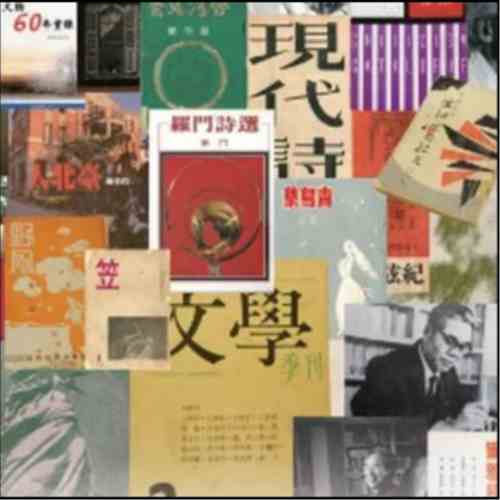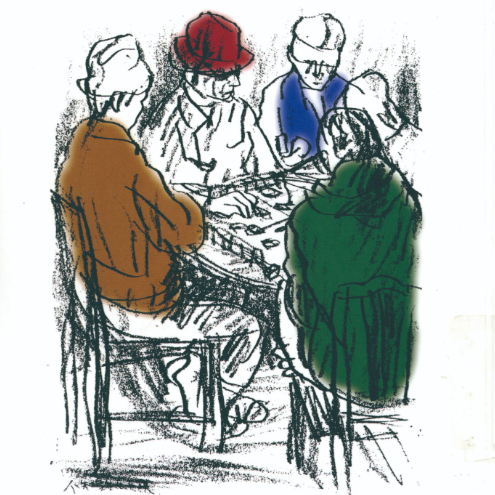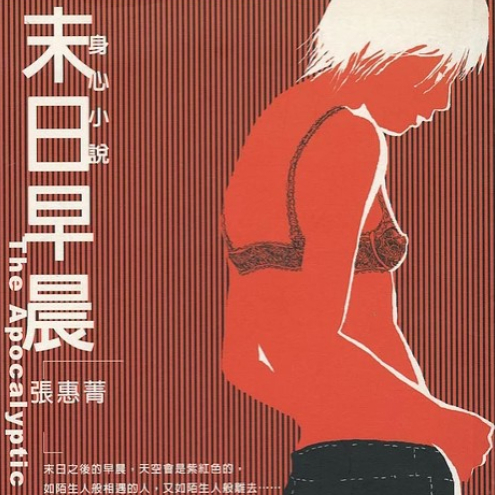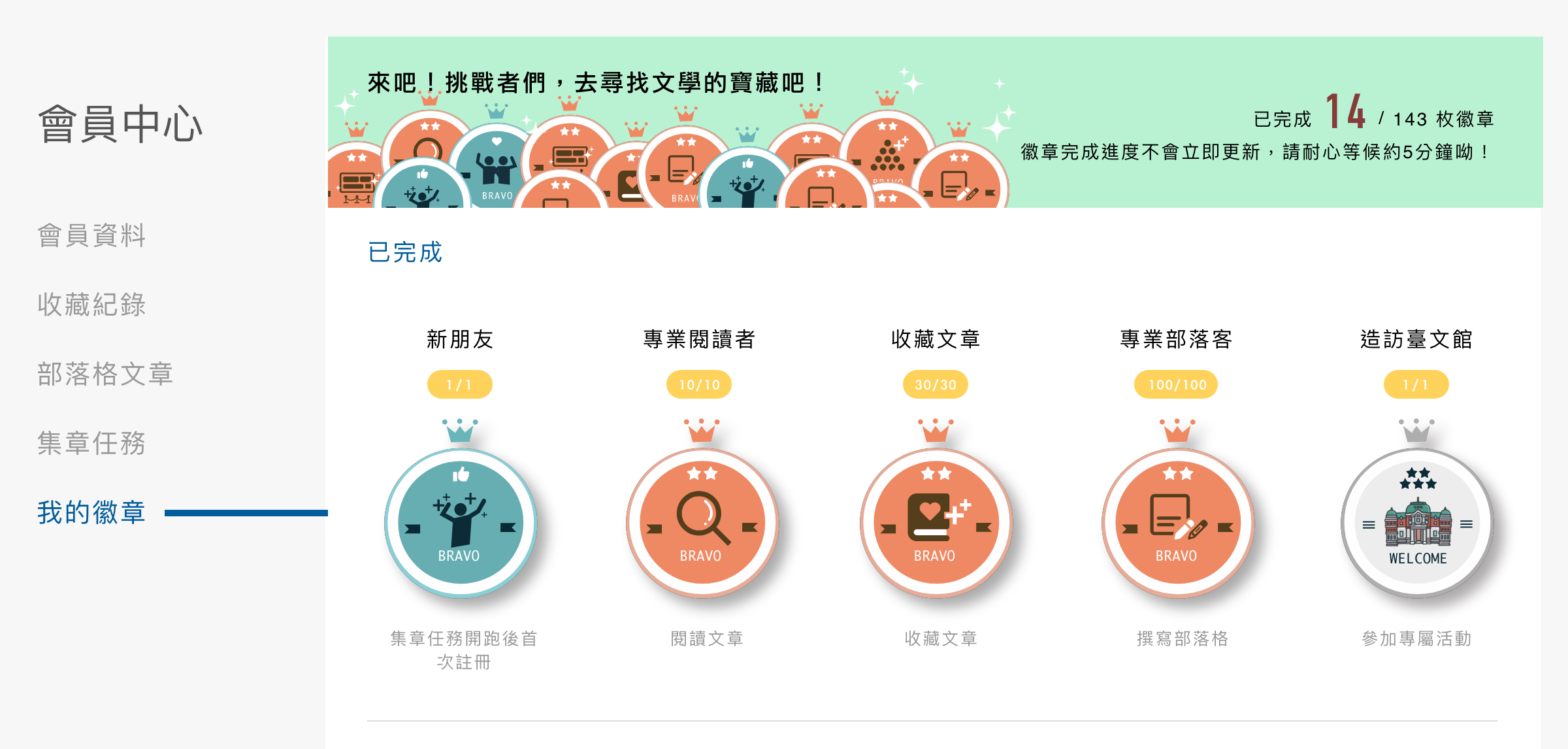The term “comrade” referring to gays and lesbians has its origin in the annual Hong Kong Lesbian & Gay Film Festival begun in 1989 under the direction of Hong Kong theater director Edward Lam (Lam Yik-wa). Taking a quote from Sun Yat-sen that “The Revolution has not yet prevailed. Comrades, keep up the good work!” and the Confucian idea of a “universal commonwealth,” the term replaced the word “homosexual” that was rapidly becoming stigmatized.“Gay and lesbian literature” in Taiwan began very early, starting with postwar modern literary works in Chinese. This can be divided into four periods: (1) beginning, 1960-1975, (2) development, 1975-1983, (3) problem, 1983-1993, and (4) wildly popular, (1993∼2000).
.jpg)
Ed., Zhu Weicheng, A Selection of Taiwan Gay and Lesbian Fiction.
In the 1960s Taiwan gay and lesbian literature opened with a work by Kenneth Hsien-yung Pai. In his short story “Dreaming Under the Moon (月夢)” Pai writes about delicate and deep sexual feelings between men, in “Lonely Seventeen (寂寞的十七歲)” he talks about the activities of a gay man in Taipei’s Peace Park, and a short story in the Taipei People (臺北人) series was the seed for the later Crystal Boys (孽子). Following this were Lin Huaimin’s “André Gide’s Winter (安德烈‧紀德的冬天),” and Li Ang’s “Looking Back (回顧)” and “Late Spring (莫春)” in which she wrote about lesbian relationships.In 1977 Kenneth Hsien-yung Pai serialized his Crystal Boys in Modern Literature (現代文學), which sent shock waves through the cultural community. In the 1980s Gu Zaosen’s “Zhang Wei (張偉)” was a story about the sense of desolation and helplessness of a good student who discovered he was gay. Following the political liberalization in the wake of the lifting of martial law in 1987, the murky gay and lesbian movement began to surface and amid the rising clamor of voices, gay and lesbian literature blossomed throughout the country in the 1990s.
.jpg)
Kenneth Hsien-yung Pai, Crystal Boys.
In 1990 Ling Yan’s The Silent Thrush ( 失聲畫眉) won the “ Independent Newspapers Million Dollar Prize for Literature,” in 1991 Cao Lijuan’s story “Dance of the Virgin (童女之舞)” won First Prize in the United Daily News (聯合報) Short Story Awards, and the same year Lin Yuyi’s “Snow White (白雪公主)” won the United Daily News Micro-Award for Literature. Subsequently in 1994 Zhu Tianwen won First Prize in the first China Times Million Dollar Award for Literature for Notes of a Desolate Man (荒人手記), in 1995 Du Xiulan won the first Crown Popular Novel Award for The Unfilial Daughter (逆女) and in that same year Qiu Miaojin’s Notes of a Crocodile (鱷魚手記) attracted broad interest and approval following news of the writer’s death.
Gay and lesbian literature in the 1990s—from Zhu Tianxin’s “Of Butterflies in the Spring Wind (春風蝴蝶之事),” Jiang Xun’s For the Sake of Lonliness (因為孤獨的緣故) to Sun Ziping’s Male Body (男身) and Wu Jiwen’s Reader for Fin-de-siècle Adolescent Love (世紀末少年愛讀本)—constantly produced new and upcoming talent who were masters of the literary scene. And “queer literature” writers like Ji Dawei, Hong Ling, and Chen Xue borrowing from the gay and lesbian movement produced literature of a unique character that could not be properly classified. In 1998 the first Global Chinese Gay and Lesbian Literary Award was born.
.jpg)
Jiang Xun, For the Sake of Loneliness.
With the new millennium in 2000, gay and lesbian literature was on the rise. The Unfilial Daughter, Crystal Boys and Love’s Lone Flower (孤戀花) were all adapted for the screen and for TV. The “new age writers” like Zhang Yixuan with The Broken Hours (壞掉時光) and Salsa’s collection of lesbian poetry, Endangered Species (瀕危動物), attracted a lot of attention. In addition, “Northern Light Publishing” and “Must Muster Publishing” exclusively published gay and lesbian literature. With its volume of publication and rapid growth, gay and lesbian literature has created its robust vitality and writing style.

.jpg)
.jpg)








